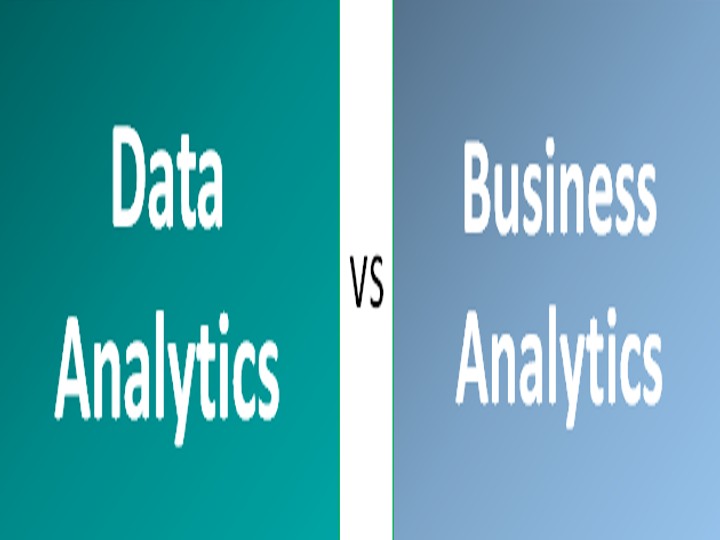Big data is transforming the way businesses are making decisions in enterprises of all sizes. It has now been understood and adopted in sectors as varied as government agencies to the education sector.

Data is manufactured from a wide range of sources and is helping organizations to expand their sales, reach, launch new services or products, or operate more efficiently. In order to make use of this data in the right way and use it to be competitive in the market, companies must apply business analytics and data analytics together. Often, the two are easily confused.
Read this article to learn about the functions of each and compare the roles professionals are needed to perform. You can opt for a data analyst course or a business analytics course once you decide which one serves your goals better.
What is business analytics?
The term business analytics indicates a combination of tools, applications, and skills which allow businesses to improve the efficiency of the core business functions– sales, IT, marketing, finance, customer service, etc. Business analytics puts focus on the larger implications of data on business and measures the actions resulting from them.
What is data analytics?
Data analytics refers to the neat arrangement of massive datasets in order to reveal trends and patterns in the business. It is done to draw conclusions about why or how something took place or didn’t work out. It supports business leaders by helping them make informed business decisions backed by real insights. Data analytics brings insights more than general information, for example, it studies how customer demographics, age, geography, and other factors have an influence over the business. Data analytics involves a range of techniques and approaches that are also frequently referred to as data science, big data analytics, data mining, data modelling, etc.
Additional required abilities of each role
Besides technical skills and other role-specific skills, each of these roles require some additional abilities to be their best.
Role of a business analyst
- Take a comprehensive approach to an issue or challenge in business
- Develop reports, analyses, and in-depth project plans with clarity
- Work with professionals across all levels of the organization to collate the information needed to drive change
- Communicate with the management and director to present clear and persuasive recommendations
Role of a data analyst
- Translate data into insights for business
- Identify data sets and patterns
- Work solo and independently
- Report business recommendations in a concise and clear manner
- Define analytical processes as required, besides data collection
Data Analyst vs Business Analyst Jobs
Data analysts can find work in very different sectors– e-commerce, software development, education, finance, etc. The skillset of a data analyst is many and can be applied to different industries. Business analysts have roles that can be divided into a variety of job titles — financial analyst, operations research analyst, market research analyst, etc. Each of these roles specifically applies to a particular department of an entire organization.
Support InfoStride News' Credible Journalism: Only credible journalism can guarantee a fair, accountable and transparent society, including democracy and government. It involves a lot of efforts and money. We need your support. Click here to Donate
